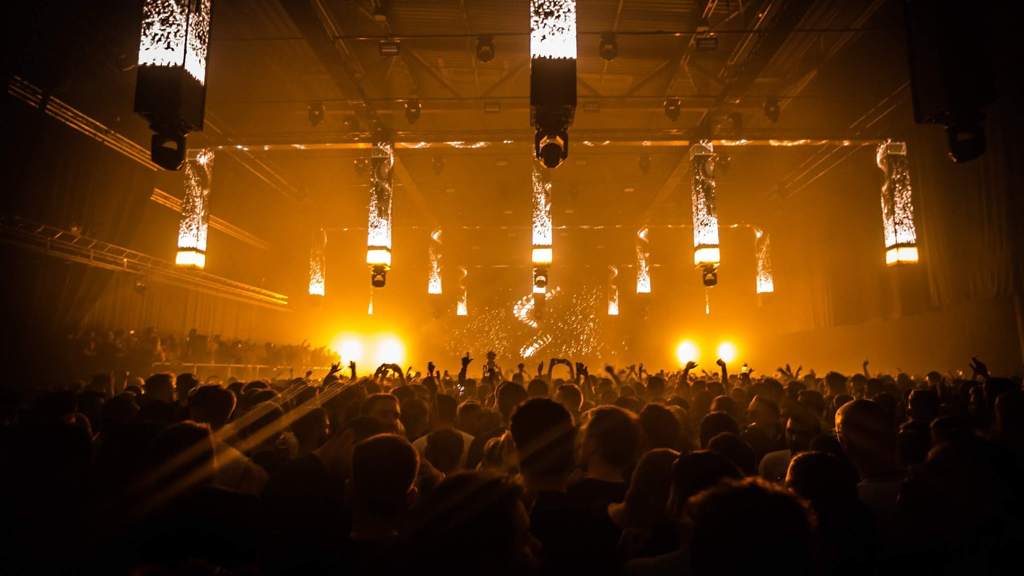Published
Tue, Mar 16, 2021, 09:00
- After taking a pummelling in 2020, UK and European festivals may return in some form this year as new rules usher in cautious optimism.

Amid extending lockdowns and complaints over the sluggish roll-out of Covid-19 vaccines, it's uncertain what this summer holds for UK and European festivals.
In a critical pick-me-up for the battered industry, the Dutch government has given the green light for festivals to take place after July. But elsewhere, most authorities have yet to spell out timelines, with several countries such as Italy, Germany and parts of France in some form of lockdown. In the UK, meanwhile, big festivals can return no earlier than June 21st, though details on testing procedures or capacity limits have yet to be announced, according to prime minister Boris Johnson's latest roadmap.
Some major festivals scheduled to take place in June have already cancelled, including Barcelona's Primavera Sound and Glastonbury in the UK. But many others, such as Houghton, Dimensions, Polifonic and Loveland, hope to go ahead later in the summer. Months of little to no work has left the entire industry reeling so even a short summer season would be enough to revive spirits. But organisers say more clarity is needed for them to realistically prepare for a comeback, even a downsized one.
"In Italy, the government just changed a few weeks ago so we're waiting for the next set of guidelines," said Marco Sala, cofounder of Italy's Polifonic. The festival normally takes place in Milan and Puglia but this year's Milan edition, scheduled for early June, could be postponed or cancelled.
Germany's Time Warp is scheduled for October but it will only proceed with ticket pre-sales once it officially gets the green light, said Robin Ebinger, a partner at Cosmopop, the company behind the Mannheim festival.
Waterworks, a new London festival that was due to debut last year, is planning to go ahead on the last weekend of September after postponing from August. "We're moving to a new site, which is licensed for 40,000 people but we're looking to do an event for 10,000 people," said Simon Denby from Percolate, a partner in Waterworks. "We want it to feel intimate with five small stages rather than a main stage as such."
The need for a safety net
Even with lower capacity and postponed dates, festivals are fast approaching deadlines to put down deposits for contractors and artists—a risky move when most lack insurance for pandemic-related event cancellation.
"At the moment, we try not to have too many financial obligations until the situation gets clearer for all of our festivals," Ebinger said. "It's a real step-by-step planning and balancing act at the moment."
Polifonic, meanwhile, has already made some advance payments on booking and artist fees, but there's no cause for worry as those amounts can always go towards next year in the case of cancellation, Sala explained.
Certain European countries, such as the Netherlands and Germany, have announced public funding for event organisers who need to cancel in the case of Covid-19 outbreaks. In January, the UK's digital and culture minister Caroline Dinenage said that the government was "not yet convinced by the evidence presented to date that insurance intervention is the right form of support for the events sector nor that this is the right time to consider it," the Guardian reported.
But even with cancellation insurance, the outlook isn't obstacle-free, warned Amsterdam's Loveland, which celebrates its 25th anniversary this year. "It does not mean that we will incur costs that are not strictly necessary, but this gives us the space to start organizing our events," said Michelle Antrag, the festival's production manager.
Covid-19 concerns aside, European organisers, backstage crews and artists also face the taxing issue of touring now that the UK is no longer part of the common bloc. As of last month, the UK government had yet to start talks with EU nations on relaxing artist visa rules.
Suppliers under pressure
As festivals move forward with planning, production companies, food vendors, audio suppliers, staging crews, lighting teams and various other entities in the greater supply chain are facing a sudden rush of demand.
"Now that there's a glimmer of hope on the horizon for a summer season, we've had plenty of calls asking about our availability," said Kyle Marriott, technical director of Manchester-based production company Neuron Pro, whose clients include Outlook, Dimensions, Waterworks and Glastonbury. POOLgroup, a production firm based in Germany that works with Time Warp, said it's received several requests from festival clients, many of which have postponed to late summer this year.
For suppliers who haven't gone bankrupt or exited the field, finding the capacity to deal with incoming jobs after a year of financial stress is the next challenge. Many of Neuron Pro's best riggers, engineers and lighting technicians have already found alternative work after receiving insufficient financial support last year—a development that's greatly impacted the company's freelancer pool, Mariott noted.
"More people are leaving the industry, key suppliers have taken government contracts or have gone into more stable areas like construction so we're approaching a point where supply chains might get stretched even once festivals do resume normally," echoed Paul Reed, CEO of the Association Of Independent Festivals (AIF), which is the UK's leading festival representative body.
With fewer suppliers in the market and new hygiene measures such as additional cleaning staff and security to implement, many promoters are expecting higher operating costs this year. Should that happen, ticket prices could rise as those costs get passed down to consumers.
"Inevitably, ticket prices will need to go up this year," said Denby. "On one hand, there will be big demand but also because supplies will cost more. Most festivals take three years before they break even so a lot of festivals might be absorbing the higher operating costs if they don't sell out."